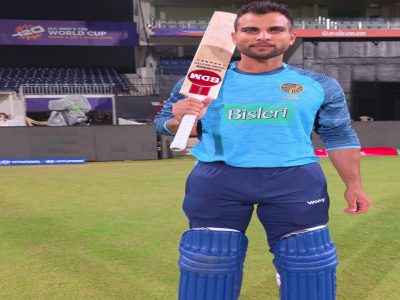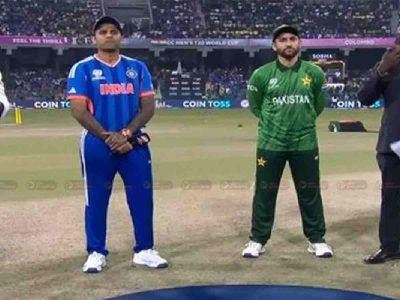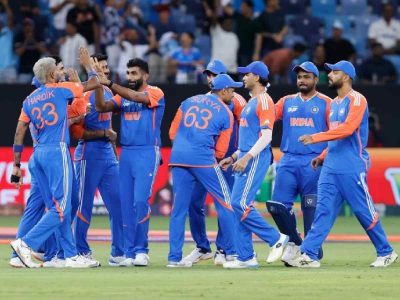With the Board of Control for Cricket in India (BCCI) deciding to shift the remaining matches of the Indian Premier League 2021 to UAE, the richest cricket tournament is alive and kicking
There is no question that the IPL is the heart of not just India but the world’s cricket economy. And a cancellation because of Covid-19 would have led to losses to the tune of Rs 4000 crores. During these challenging times, where not just individuals but nations like Afghanistan, too, earn incomes for letting their players participate in this cash rich tournament, it would have been a disaster for sure.
Money aside, having the tournament in UAE’s three cities of Sharjah, Abu Dhabi and Dubai could well be a boom for Team India players for the simple reason that the upcoming T20 World Cup is likely to be staged on similar venues after the completion of IPL’s 31 matches. The IPL 2020 was also held in the UAE strictly adhering to the post Covid-19 protocols with no fans allowed inside the stadiums. This proved to be a smashing hit with 60 matches being held in 53 days at three venues close to each other, thus making logistics easier.
Even at that time, there were murmurs that BCCI and UAE Cricket Board had reached any understanding to stage the next IPL there in 2021, but for reasons only known to general secretary, Jay Shah, that did not materialise despite entire IPL General Council (GC), led by former India player Brijesh Patel recommending the gulf plan.
Why not in India?
Why has the BCCI chosen UAE basically boils down to the logistics. Unlike India, where the tournament was held at various centres requiring frequent travel between cities situated far off from each other, there was always the risk of contracting the virus from outside the “secured bio-bubble” created for teams and officials associated with the IPL.
More so given India’s slow vaccination pace and climbing infection rate, BCCI was left with no other alternative than to go to a ‘more compact host country’, in roughly the same time zone, with stadiums not too far away from each other and reachable by short road trips. And there was certainly no other place other than UAE that offers all these along with top-level communication, accommodation and other facilities needed to conduct the game in a secured environment.
To put it in a simply, the UAE suits every cricketer geographically as it is roughly the centre of the world and has already covered the entire adult population with vaccination. Not to forget that UAE has already been the home venue for Pakistan since 2009, hosting international cricket matches regularly.
How does it work in the UAE?
Taking a cue from the NBA, where all teams were put inside a bio-bubble last season, the IPL in 2020 had almost similar arrangements. The eight participating franchises were put together in bio-bubbles in Dubai, Abu Dhabi and Sharjah, where the matches were held.
All the players and officials had to clear a total of five Covid-19 tests — two before flying out and three in their first six days of arrival in the UAE — before entering the bio-bubble and then all squad members were tested on the fifth day of every week throughout the tournament.
Strict social distancing norms were followed, including squad members being discouraged from having any close contact even within the bubble, which included moving between hotel rooms. Squad members were also asked to wear masks outside their rooms at hotels and avoid any unnecessary movement.
However, there were exceptions, of course. If an injured player medical assistance, then the guidelines suggest the movement be restricted to the medical facilities with minimal interaction with outsiders.
This was what exactly created problems in India when spinner Axar Patel was taken to an Ahmedabad hospital for a scan of his injured shoulder and he contracted the virus there. This is another matter that a careless DDCA top official took as many as four IPL teams for practice sessions, outside the bio bubble, at a local Delhi club. And even after being exposed by the media, no action was initiated against this particular official responsible for breaking protocols.
Much-needed preparation for T20 WC
Though no decision has been made yet about the upcoming T20 World Cup to be hosted by India, the International Cricket Council (ICC) has already decided to keep the UAE as a backup venue for the mega event. The 16-team global tournament has been scheduled to take place in India between mid-October and 14 November .
This has come as a boom to Team India as 31 remaining matches of IPL would provide them an opportunity to acclimatise with weather and pitches of UAE before the commencement of T20 World Cup. And the news coming in from Australia and England where top players may not be released due to their national duties, Indian players would certainly be better prepared than the rest. This has always been felt by players that playing on Indian pitches is more challenging than playing in almost identical surfaces in UAE. It was quite evident during the course of the first 29 games of the 2021 IPL season, batsmen found it tougher to play in Chennai as opposed to Mumbai, which had plenty of runs on offer.
But it would be a great challenge before the ICC to maintain the fitness of all three stadiums as per world standards. In any ideal situation, the ICC would have liked to have a breathing space between the two world class events, like IPL and the World Cup, to ensure that the pitches are in ideal conditioin. While there’s no doubt in the minds of any cricket follower around that world about the quality of training venues, the slowing down of the already slow pitches in this part of the world could well be a major factor due to the sheer amount of cricket being played on them.
In all, the three venues of Sharjah, Abu Dhabi and Dubai will end up hosting a total of 76 matches inclusive of 31 IPL and the 45 T20 WC games. If we compare it with the 2020 IPL total outings of 60, there would only be an extra burden of 16 matches. That’s the reason that ICC is already considering Oman as a potential venue for initial round matches. But then, it would require special permission from the UAE government for teams to cross borders during these extra-ordinary times of Covid.





